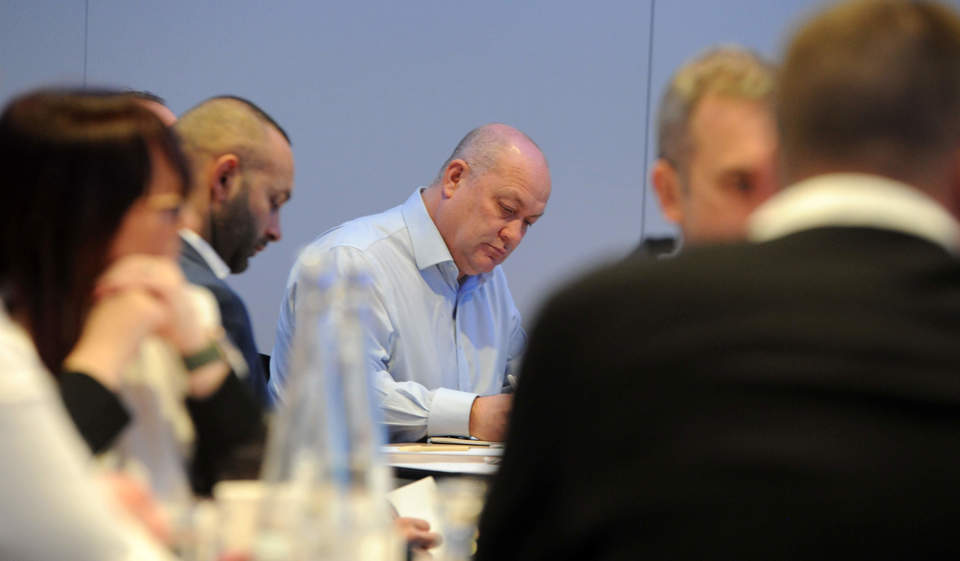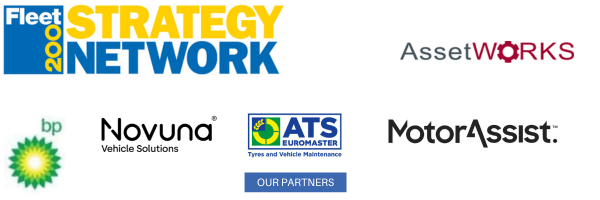A significant reduction in business mileage, a growth in fleet size and business efficiency together with predictions of ‘no going back to normal’ – these were some of the impacts revealed by fleet decision-makers.
At the December Fleet200 Executive Club meeting, a roundtable discussion of private and public sector fleets saw the following views shared.
A significant reduction in business mileage, a growth in fleet size and business efficiency together with predictions of ‘no going back to normal’ – these were some of the impacts revealed by fleet decision-makers.
At the December Fleet200 Executive Club meeting, a roundtable discussion of private and public sector fleets saw the following views shared.
- “I work in what was deemed a key industry and in the first lockdown we were back up and running again in three to four weeks. The van fleet increased in numbers, through additional hires, because of social distancing and the need to not have multiple people in vehicles. Although we did install Covid screens in crew cab vehicles to allow four people to travel together. It meant mileage per vehicle went down, but total fleet mileage stayed around the same.”
- “We gave staff that had to drive dispensation letters to show to the police should they be stopped during lockdown as evidence they were doing so through job-need.”
- “Working in the NHS, when the GP surgeries shut down, all the district nurses had to be mobilised. We worked very closely with dealerships and vehicle manufacturers to get nurses into hundreds of demo vehicles, which would have otherwise been sat on forecourts.
- “Agile working, working from home, had always been judged not right for us, prior to the pandemic. But now we are introducing homeworking and considering not renewing property leases. It’s an opportunity for long-term cost savings.”
- “Public transport is now the preferred option for me, where possible. I drove between 1,200 and 1,500 miles a month on business pre-pandemic, now I would be lucky to do 100. And I can work while I’m travelling.”
- “All meetings are virtual – and attendance has gone up because there is no requirement to travel which would have dissuaded people from doing so previously. A half hour meeting only requires that amount of time, not the additional amount required to travel to and from it. It’s staggering in retrospect how much time is being saved.”
- “Our fleet size has grown 23% since lockdown as people move from using public transport into our salary sacrifice scheme. They wear a mask all day at work and then to have to do so on public transport was too much for them.”
- “There’s a commercial property crisis coming. In London, only half the lights are on in brand new office buildings. I was the only person in my office yesterday. We will not be renewing our lease next year. Two years ago, you’d get run down by a bus crossing the road in Bishopsgate; now you can play tennis in the road.”
- “In my office, where there used to be 120 people in everyday, now there’s 13. Those in credit control are doing five days in the office, in other departments, two or three days.”
- “I used to do 20,000 business miles a year. Since April, I’ve done 600. Now I make six online calls in one day. Efficiency has gone through the roof. Wasted time on motorways is gone.”
- “All of our line managers who have looked at leased car mileage have said the same: if they’re an essential user mileage has stayed the same or gone up. If they’re office-based there won’t be any business mileage. It’s cost effective to terminate some of those lease contracts and allow employees to move into salary sacrifice.”
- “We’re encouraging non-essential users to opt out of the company scheme and give them an increase in salary to fund a vehicle.”
- “Our vans are driven by multiple drivers each day so we invested in disinfectant wipes and masks.”
- “The pandemic has changed the world in the way that, without it, would’ve taken 20 years. We’re not going back to normal, because the way we are working now is much better in so many ways. The reason you have people like Boris Johnson saying you should go back to your offices, is they’re petrified of what’s going to happen to the commercial property market. It will totally collapse.”
- “Acknowledging those colleagues who needed contact, we introduced a 9.30am call with the team at the start of lockdown and we have carried it on because it works beautifully. We talk more as a team than we ever did before. It’s a fallacy you need to be in a room with someone to have a connection.”
Login to continue reading.
This article is premium content. To view, please register for free or sign in to read it.




















Login to comment
Comments
No comments have been made yet.